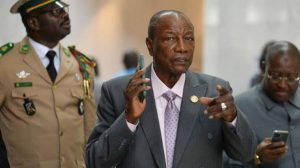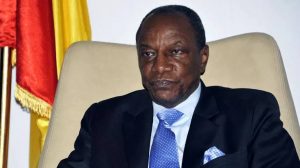
Guinea’s leading opposition figure Cellou Dalein Diallo has appealed against President Alpha Conde’s victory in last month’s presidential election at the country’s constitutional court.

The opposition figure’s lawyer, Amadou Diallo reported that the appeal, filed on Sunday, contains irrefutable evidence that irregularities marred the election.
Conde, 82, won a hotly contested October 18 election, according to provisional official results, setting the stage for a controversial third term in office.
But Cellou, 68, had already claimed victory, citing data his activists gathered at individual polling stations.
That move triggered weeks of clashes between his supporters and security forces in the West African nation, in which at least 20 people were killed.
While Amadou did not offer details about the evidence, the lawyer said it would allow the constitutional court to annul Conde’s victory.

Three other losing presidential candidates also filed appeals to the constitutional court, according to a court official who declined to be named.
Much of the turbulence in Guinea centres on a third term for the octogenarian president, whom opponents accuse of drifting into authoritarianism.
A former opposition figure whom an authoritarian leader once sentenced to death, Conde became Guinea’s first democratically elected leader in 2010 and won re-election in 2015.
He pushed through a new constitution in March, arguing it would modernise the country. But it also allowed him to bypass a two-term presidential limit.
Opposition to that move had provoked mass protests from October 2019, in which security forces killed dozens of people.
Cellou and his supporters are deeply suspicious of the credibility of last month’s election, although officials from the African Union and the 15-nation ECOWAS bloc said it was mostly fair.
The European Union, United States and the former colonial power, France, all released statements last week expressing concern about the vote-counting process. Africanewsguru update.










